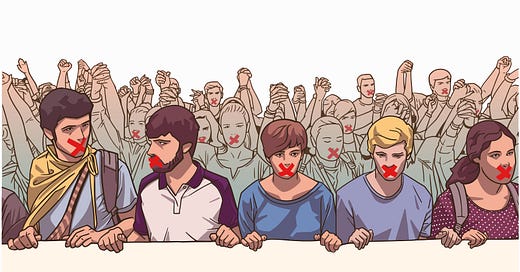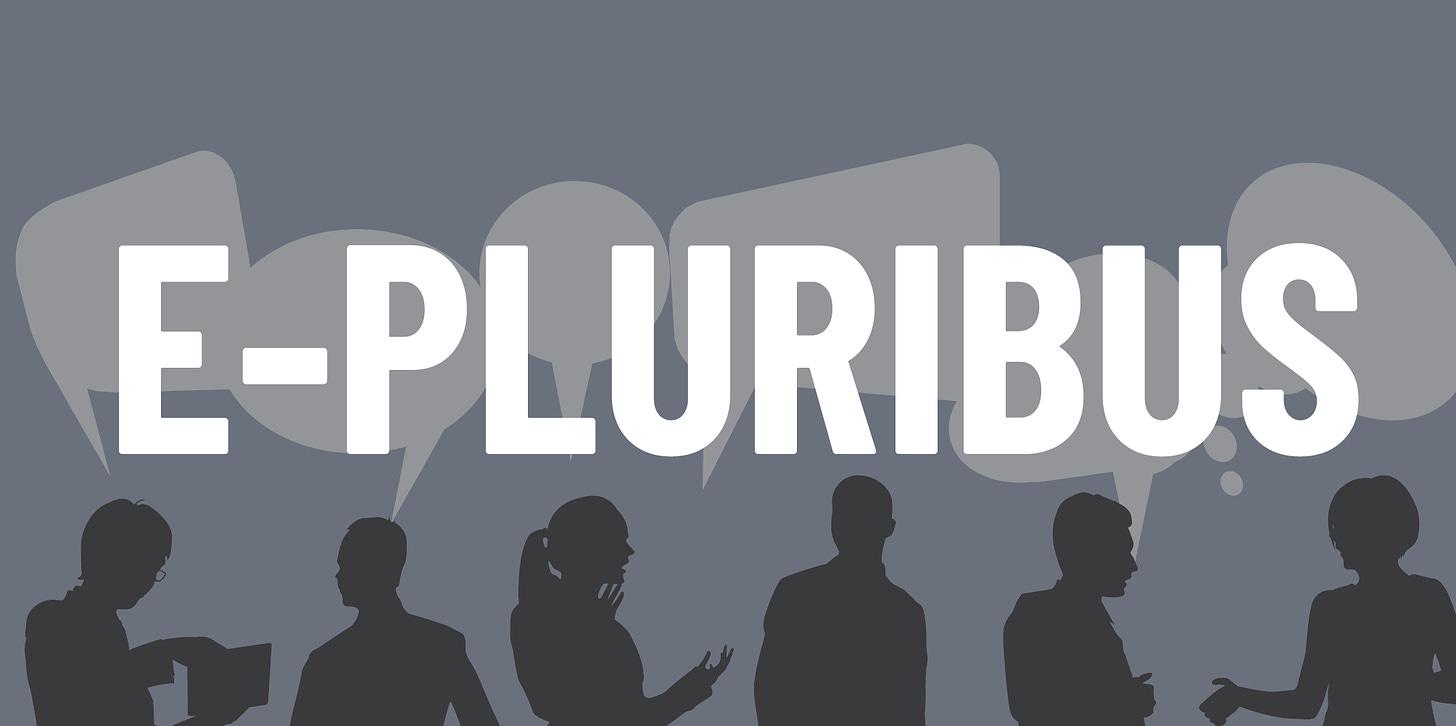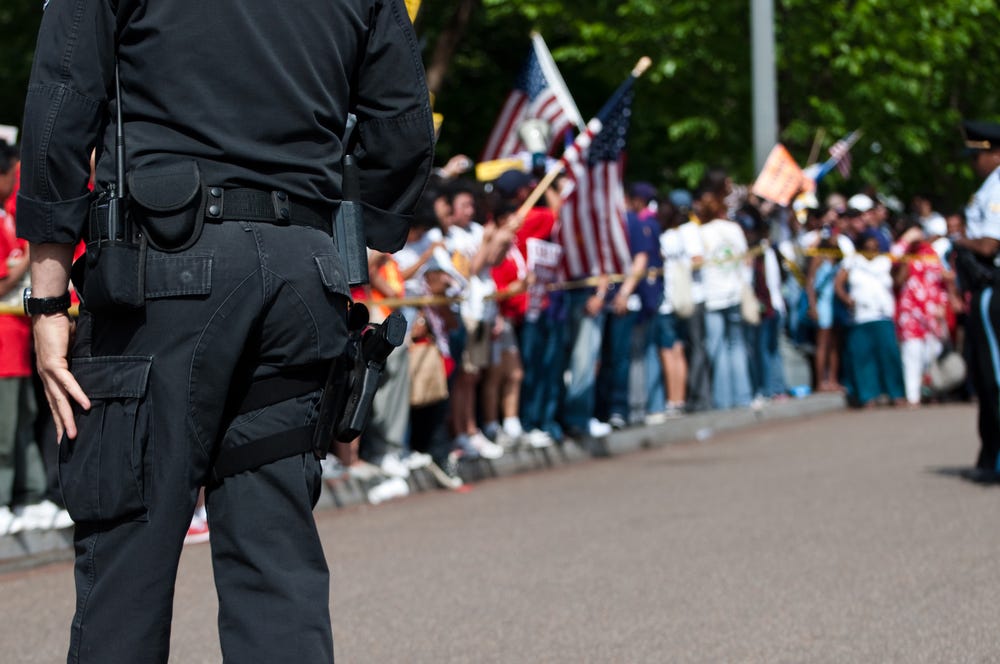E-Pluribus | June 14, 2021
The world loves free speech unless it's offensive, language police, and fleeing Venezuela.
A round up of the latest and best writing and musings on the rise of illiberalism in the public discourse:
J.D. Tuccille: The World Loves Free Speech—Except When They're Offended
Recently, the Danish think tank Justitia, Columbia University's Global Freedom of Expression, and Aarhus University's Department of Political Science published a report called “Who Cares About Free Speech?” The report surveyed over 1,500 respondents in each of the 33 countries included. J.D. Tuccille discusses some of the more troubling findings in the report at Reason:
Majorities in 14 countries say that governments should be able to prevent people from making "statements that are offensive to your religion and beliefs." Most of the countries on that list aren't a shock; is anybody surprised to discover that majorities in Egypt, Russia, and Turkey think that free speech protections shouldn't extend to criticism of their own ideas? But Brazil is on that list, too. And even Germans are divided, with 47 percent agreeing that governments should be able to muzzle expression they find offensive.
Germany is similarly divided when it comes to insults to the national flag, with 48 percent supporting government restrictions—the same share as in Australia. But 56 percent in France agree, placing that country among the 21 countries where majorities say that governments should be able to prevent people from insulting the national symbol.
Germans and Australians, along with Britons, rank among the majorities in 22 countries who think that governments should be able to prevent people from saying things that are offensive to minorities. (Germany, by the way, is the birthplace of a new wave of Internet "hate speech" censorship laws sweeping the world.)
Majorities in Kenya, Malaysia, Nigeria, Pakistan, Russia, and Tunisia say that governments should be able to prevent people from making statements in support of homosexual relationships.
Majorities in 19 countries, including the United States and the United Kingdom, say that government should be able to prevent media organizations from publishing information about "sensitive issues related to national security." Will we have to just take officialdom's word for it that suppressed articles were national security-related? The survey doesn't say.
Given the exceptions that many people carve out in their generic endorsement of free speech, and that "public opinion about free speech (popular demand) tends to go hand-in-hand with the actual enjoyment of this right (government supply)" according to the survey, the consequences are no surprise.
"Global freedom of expression is in decline, now at its lowest for a decade" according to the 2019/2020 report from Article 19, a British organization named after the portion of the Universal Declaration of Human Rights addressing free speech protections. "More than half of the world's population – around 3.9 billion people – live in countries rated in crisis."
The slide has been accelerated by the worsening condition for liberty in countries with large populations, including Bangladesh, China, India, Russia, and Turkey.
Read it all at Reason.
Nicholas Clairmont: Language Police
At the Washington Examiner, Nicholas Clairmont highlights an unusual civil lawsuit filed by a New York Police Department union against a citizen named Terrell Harper. Harper was caught on a police body camera yelling racist, anti-Asian epithets at Chinese American NYPD Detective Vincent Cheung. The union is suing Harper on the theory that his verbal assault will lead to more anti-Asian violence. Clairmont examines the legal implications of this case:
Verbal assault is a conceptual category that does not really exist in United States law, just as hate speech is something that means something different to everyone and nothing to a court. Indeed, in the case of R.A.V. v. St. Paul, the Supreme Court specifically ruled that while some face-to-face speech acts can be ruled unprotected by the First Amendment because they’re so inflammatory they're likely to lead someone to punch you (the infamous “fighting words” doctrine), it’s unconstitutional to make special exceptions for racist speech.
The twist here is that activists of the Left are having a tactic of theirs coopted by the target of their attacks, and the suit is a test case for whether such a turnabout will become more common.
The basic fact that words are quite different from physical attacks is being eroded by the success of ideas and arguments promulgated by critical race theorists such as Mari Matsuda, who wrote the book Words That Wound: Critical Race Theory, Assaultive Speech, and the First Amendment. Indeed, the idea that some words are or can be violence is the very heart of critical theory, understood as a political project aimed at eroding content-neutral speech protections. But the popularity of this idea has been mainly concentrated among younger members of the left-wing media, or the aficionados of "the Squad," or rarefied grad students.
Yet when I talked to the lawyer bringing Detective Cheung’s case, James Moschella, he was jazzed about the idea that words are tantamount to violence and that speech acts can conceptually blur into physical acts for the relevant purposes. “Our concern was that if this type of behavior is allowed to stand, this type of language, it will foster additional incidents like this. People will feel emboldened that they could speak like this freely to law enforcement.” The argument was specifically that words spoken at a protest will cause a political climate that’s more violent, not that they might incite violence in the direct physical area around where the words are uttered and breach the peace. Which is to say, he sounded an awful lot like someone relatively new to the application of critical theory to civil law. One gets the distinct “fighting fire with fire” sense from all this.
The idea that people could be punished for saying something that is a direct incitement to violence has been accepted, and legitimately so, in American jurisprudence. However, the idea that you could be punished if you say something that may make society in general a worse place has (thus far) been roundly rejected, no matter how many critical theorists have yowled. The separation between the specific and the general is necessary for maintaining a pluralistic and liberal society in which every verbal dispute isn’t settled in a court of law.
It’s important to remember that the entire phraseology treating uttering “hateful” thoughts as tantamount to physical violence was generated relatively recently, created and disseminated by left-wing academics with a poor grasp on American civic traditions and with bad arguments. This is how we wound up even having such phrases as “hate speech” and “verbal assault,” which rely on the idea that speech acts are not fundamentally distinct from physical acts, even though that distinction is something every child understands perfectly well, and something the First Amendment is based in.
Read more at the Washington Examiner.
Carlos Hernández: Fleeing Venezuela
We frequently highlight discussions and commentary on illiberalism, authoritarianism and democratic norms in the abstract, but it’s another thing to read about how illiberal, authoritarian regimes affect people’s lives. At Persuasion, Carlos Hernández describes the conditions under Nicolás Maduro's brutal regime that led him to flee the country.
In 2014, after oil prices peaked, my country’s economy started shrinking, and it hasn’t really stopped. The basics of modern urban life have collapsed there, one after the other. There are power or data blackouts constantly, often multiple times a day, making my online freelancing gigs almost impossible to keep. Even when the internet works, it’s excruciatingly slow. There’s no public transport, sometimes there’s no cooking gas, and even the most basic of foods, like bananas, keep getting more and more expensive.
Water problems came close to driving me over the edge. The taps usually run dry, and the water that does come through the pipes is so dirty you can’t possibly drink it. So every other day, my morning routine there included heading out to buy bottles of drinking water to carry home. Sometimes there’s no water in the city at all, and all I can do is wait, thirsty, sweaty, in a house that smells like the toilet we can’t flush.
Probably what did it for me, though, was the thought of what would happen if I ever needed medical help. I don’t even mean COVID-19 specifically, although that is of course a worry as well. Hospitals are absurdly understaffed and simply don’t stock basic supplies. Something as treatable as an allergic reaction to seafood or an infected flesh wound can and will kill you there. And it’s not like we have fuel to get to an emergency room, either: The line for a quarter tank outside a filling station can take days.
I can’t keep living like this. I need to get to Medellín, where my closest childhood friends have emigrated and I have a room waiting for me. I don’t care that the border has been closed for over a year due to COVID.
Read the full story at Persuasion.
Around Twitter
In the CRT in schools debate, Jonathan Chait responds to a skeptic of free speech defenders:





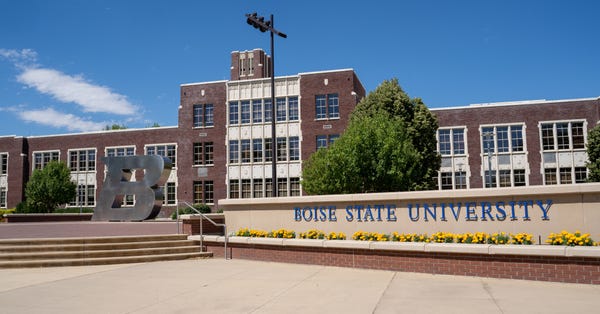







Here is the full thread from David French that Chait highlights:






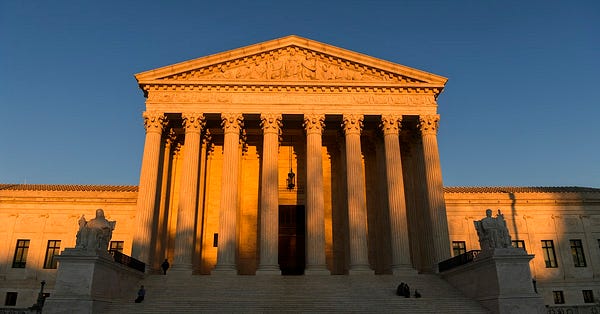




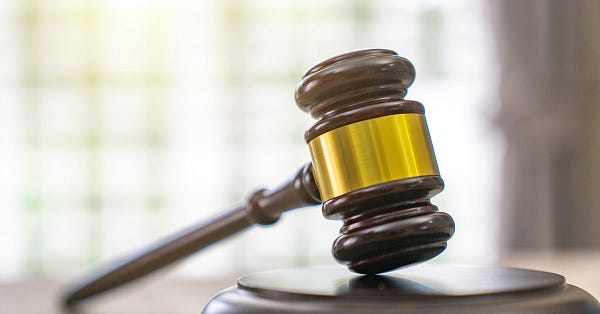

Jonathan Kay of Quillette echos those sentiments:


More from Claire Lehmann:




